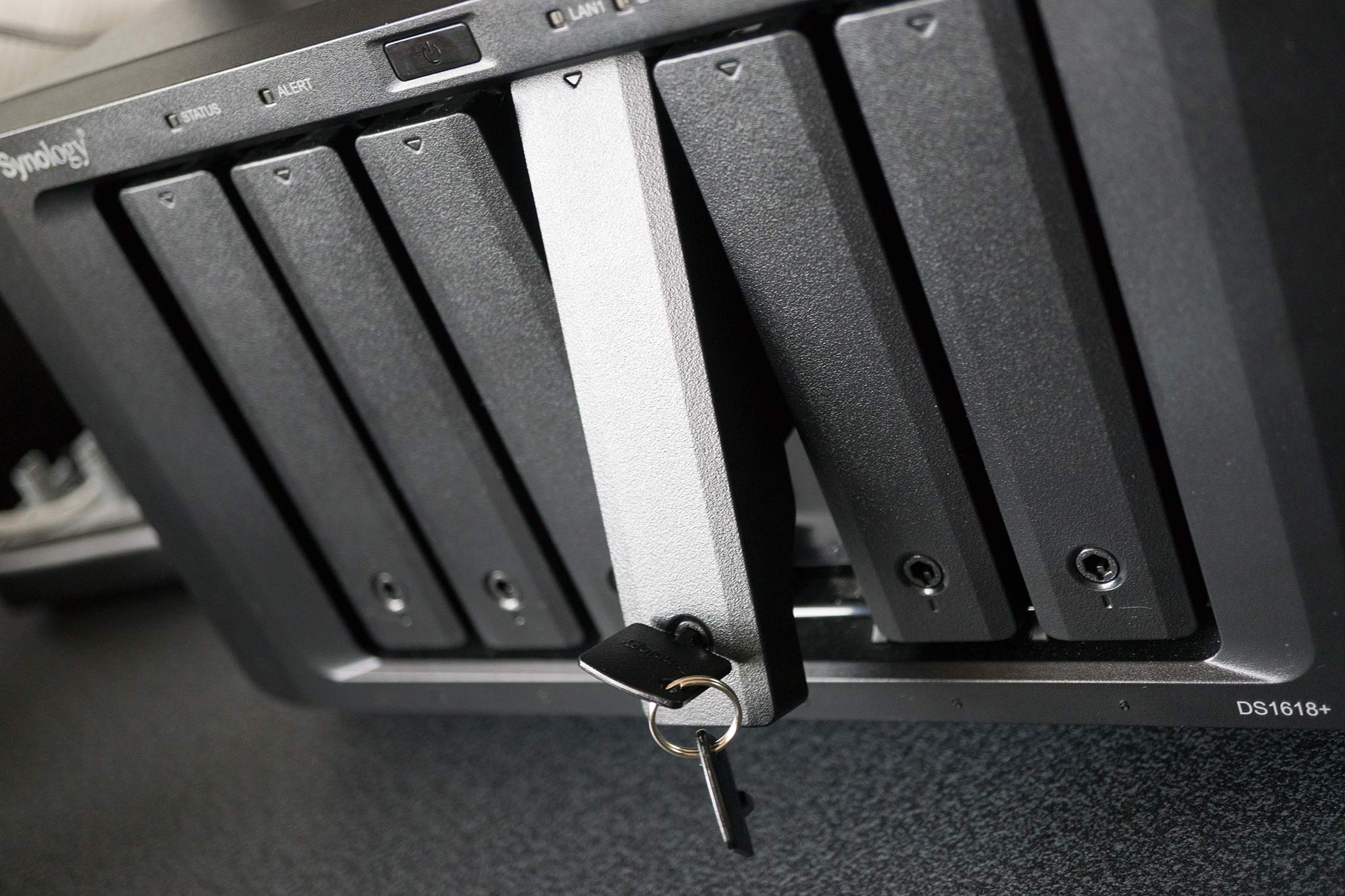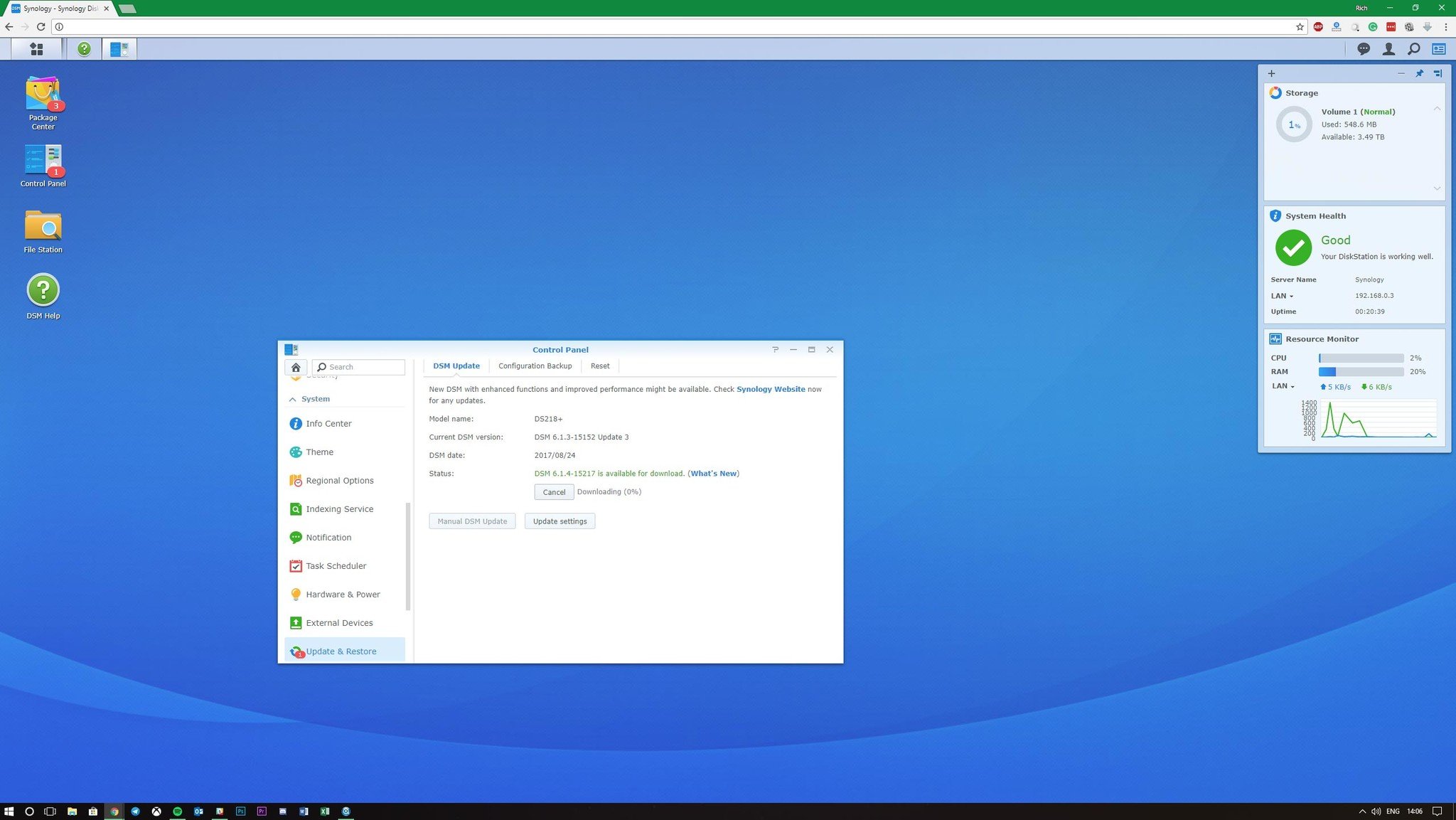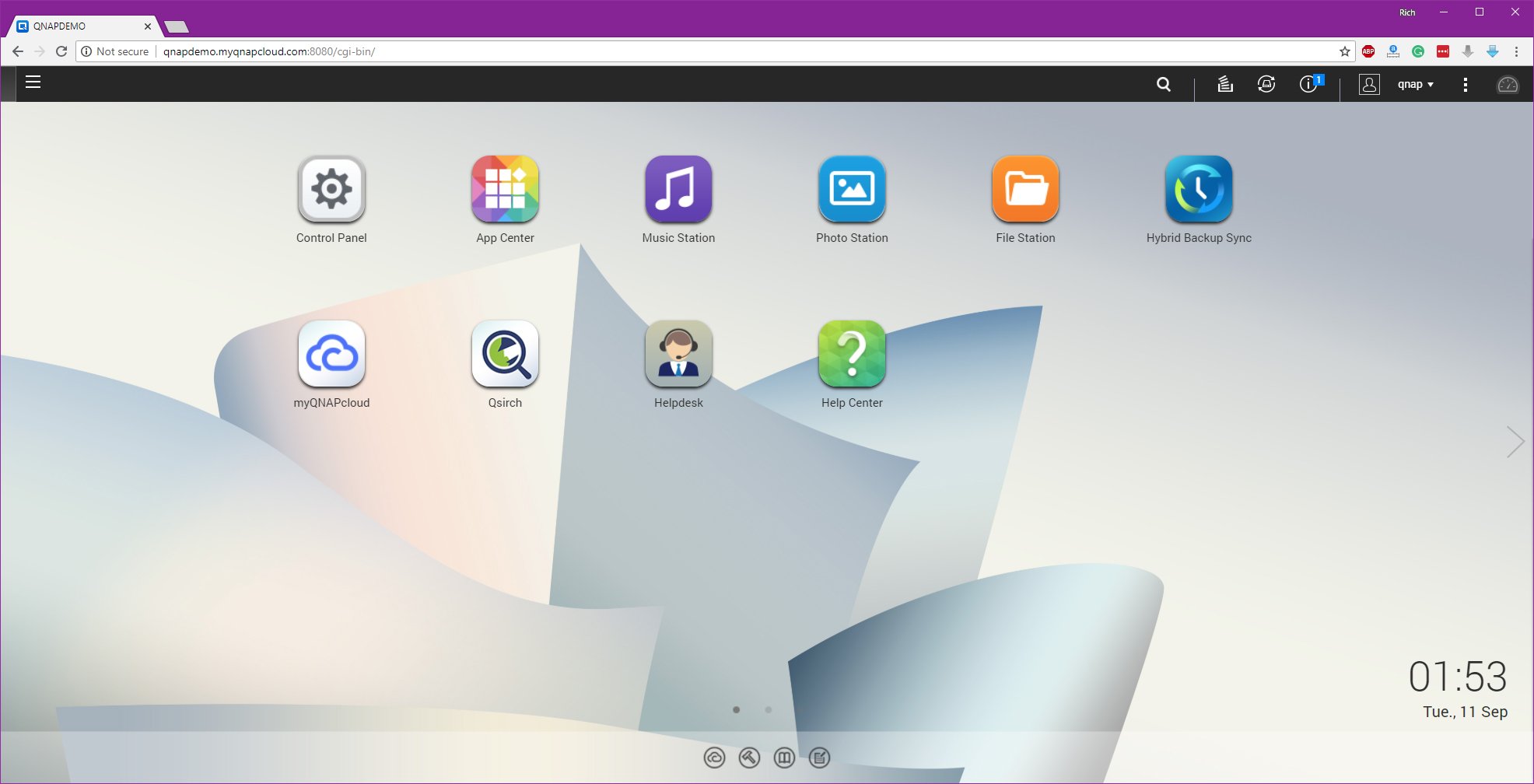Synology DSM vs. QNAP QTS: Which NAS is right for you?
We're a virtual company made up of tech experts from across the globe. The majority of our work is also done from a home office, where a NAS comes in handy. We've tried both of these OSs and know just how similar they are.

All the latest news, reviews, and guides for Windows and Xbox diehards.
You are now subscribed
Your newsletter sign-up was successful

Great design
DSM is an incredible feat of computer wizardry and is an absolute breeze to use. The only issue is that certain features require an app, instead of being baked into the main control panel.
Pros
- Super-easy to use.
- Regular updates.
- Works just like a mainstream desktop OS.
Cons
- Features spread across apps.
- Can't copy and paste files between PC.

Great hardware
If you prefer a more smartphone-esque look to your operating system, you may want to try out QTS, which has similar drawbacks to DSM.
Pros
- Super-easy to use.
- Regular updates.
- Works just like a mainstream desktop OS.
- Takes advantage of the more powerful hardware.
Cons
- Features spread across apps.
- Can't copy and paste files between PC.
I've spent extended periods of time with both operating systems. QNAP's QTS and Synology's DSM are two great software options for a NAS. Choosing a NAS for the home or office shouldn't really be determined by the OS unless you have a personal preference.
Can't go wrong with either OS
It's difficult to point out what either OS does better (or worse) because they're similar in many ways and can do everything you need a NAS to do. You need the system to power on, have the basic features included to manage installed drives and configure settings, as well as provide support for third-party services and apps.
Both companies have worked hard to make sure the installation of a new NAS and management once you're up and running is painless. Synology used to have the edge, but now the two competitors are neck-in-neck thanks to recent advancements made by QNAP.
You're comparing two very similar software offerings.
You'll find a number of apps and features present in both DSM and QTS, including cloud synchronization, file storage, smartphone connectivity, and the installation of popular third-party apps and services. Everything you'd need is present, including the simple ability to create user accounts and a more advanced method of turning the NAS into a media server.
It's not all positive, however. One feature which I'm sure some users would like to see with both operating systems is the ability to simply copy and paste files between a PC and the browser window, but focusing on that is being picky. While the choice is largely down to which you prefer the look of, Synology still edges ahead in my mind with the complete package.
Synology still arguably does software better
Synology has always been ahead and has only just started to feel threatened by QNAP, which is great news for fans of both companies. DSM continues to make strides in usefulness without clogging up the interface and in general, it just works.
QNAP has more power to work with
When you need a little more (much like comparing a Synology NAS to QNAP) you should opt for QTS, which can take full advantage of the more powerful hardware. This allows you to do certain tasks a little faster, but the OS is just as good as DSM. There are no major flaws that I'm aware of.
All the latest news, reviews, and guides for Windows and Xbox diehards.

Rich Edmonds was formerly a Senior Editor of PC hardware at Windows Central, covering everything related to PC components and NAS. He's been involved in technology for more than a decade and knows a thing or two about the magic inside a PC chassis. You can follow him on Twitter at @RichEdmonds.
